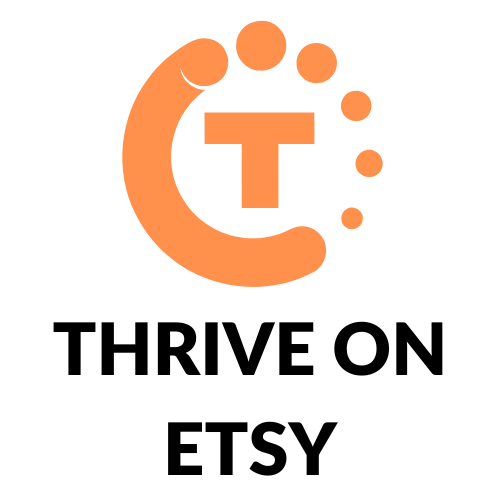Etsy and Wix are two of the most popular e-commerce platforms available today. While both platforms offer a range of features and tools to help entrepreneurs create and manage their online stores, they have unique strengths and weaknesses. Choosing between the two can be a challenge, especially for those who are new to e-commerce.
Etsy is a digital marketplace that specializes in handmade, vintage, and unique items. It has a loyal following of buyers who appreciate the platform’s focus on one-of-a-kind products. On the other hand, Wix is a website builder that offers a range of tools for creating and managing online stores. It’s known for its user-friendly interface and customizable templates. When it comes to choosing between Etsy and Wix, it’s important to consider factors such as the type of products being sold, the target audience, and the level of customization and control desired.
Understanding Etsy
History of Etsy
Etsy was founded in 2005 as a marketplace for handmade goods. The company was started by Rob Kalin, Chris Maguire, and Haim Schoppik. The idea behind Etsy was to create a platform where artisans and craftspeople could sell their unique products online. Today, Etsy has grown into a global marketplace with over 4.3 million active sellers and 81.9 million buyers.
Etsy’s Business Model
Etsy’s business model is based on taking a percentage of each sale made on the platform. The company charges a 5% transaction fee on the sale price of each item, as well as a 3% + $0.25 payment processing fee. Etsy also offers a range of optional services to sellers, such as promoted listings and Etsy Ads, which allow sellers to pay for increased visibility on the platform.
Pros and Cons of Etsy
Pros
- Large customer base: With over 81.9 million buyers, Etsy offers sellers access to a large and diverse customer base.
- Easy to use: Etsy is known for its user-friendly interface, which makes it easy for sellers to set up and manage their shops.
- Niche focus: Etsy’s focus on handmade and unique products has created a niche marketplace that attracts buyers looking for one-of-a-kind items.
Cons
- Fees: Etsy’s fees can add up quickly, particularly for sellers who use optional services such as promoted listings.
- Competition: With millions of sellers on the platform, competition can be fierce, making it harder for new sellers to stand out.
- Limited customization: While Etsy offers some customization options, sellers are limited in how much they can customize their shops.
Related Posts:
- Etsy Views vs. Etsy Visits
- Best Etsy Tools for Sellers (Free and Paid)
- Etsy History: The Ultimate History of Etsy
- What Payment Methods Can I Use on Etsy?
- What is an Etsy Shop Announcement? (+ 10 Examples!)
Understanding Wix
History of Wix
Wix was founded in 2006 by Avishai Abrahami, Nadav Abrahami, and Giora Kaplan. It started as a drag-and-drop website builder that allowed users to create websites without any coding knowledge. Since then, it has grown into a powerful platform that offers a wide range of features, including eCommerce, blogging, and social media integration.
Wix’s Business Model
Wix operates on a freemium model, which means that users can sign up and use the platform for free. However, to access more advanced features, such as eCommerce and custom domain names, users need to upgrade to a paid plan. Wix also generates revenue through its App Market, where users can purchase third-party apps to enhance their websites.
Pros and Cons of Wix
Wix has several advantages, including its user-friendly interface, extensive customization options, and affordable pricing. It also offers a wide range of templates and design options, making it easy for users to create a professional-looking website.
However, Wix has some downsides as well. One of the most significant is its limited SEO capabilities, which can make it difficult for users to rank well in search engine results pages. Additionally, Wix’s eCommerce features are not as robust as those offered by dedicated eCommerce platforms like Shopify.
Related Posts:
- Are Etsy Ads Worth It?
- Can I Sell My Etsy Business? How to Sell Your Etsy Shop
- How to Sell on Etsy Without a Bank Account
- How to Set up Google Analytics for Your Etsy Shop
- How to Sell Mockups on Etsy
Comparing Etsy and Wix
Etsy vs Wix: User Interface
Etsy is a user-friendly platform that is easy to navigate. The interface is simple, and sellers can easily list their products. The platform allows sellers to customize their store with their branding and design. On the other hand, Wix offers a more flexible interface with a drag-and-drop builder. The platform provides a wide range of customization options, and sellers can design their store to match their vision.
Etsy vs Wix: Pricing
Etsy charges a transaction fee of 5% on every sale, along with a 4% payment processing charge. This can add up, especially for sellers with high sales volume. In contrast, Wix Stores has a lower transaction fee of 2.9% + $0.30 per transaction. Wix also offers a range of pricing plans, including a free plan, which is ideal for small businesses.
Etsy vs Wix: Customer Support
Etsy has a dedicated support team that is available to help sellers with any issues they may encounter. The platform provides a range of resources, including a seller handbook and a community forum. Wix also offers comprehensive customer support, including phone, email, and live chat support. The platform also provides an extensive knowledge base and video tutorials.
Related Posts:

